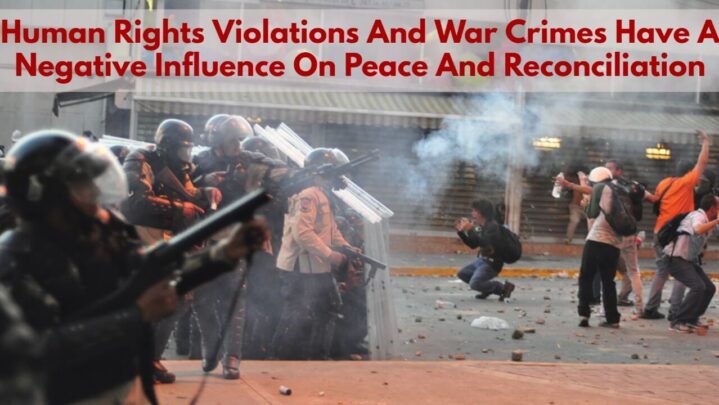War crimes and human rights breaches occur in the context of armed conflicts and frequently entail atrocities such as murder, torture, rape, and forced relocation. These acts are not only morally repugnant, but they also feed cycles of violence and retaliation, making it impossible for society to move ahead and establish enduring peace.
Victims of war crimes and human rights breaches may endure lifetime physical and psychological anguish. This trauma may be handed down through generations, making it difficult for families and communities to repair and reconcile. Furthermore, relocation as a result of war crimes and human rights violations can result in the loss of homes, livelihoods, and social networks, making it difficult for individuals to return to their communities and restart their regular lives.
Furthermore, state actors’ commission of war crimes and breaches of human rights undermines the rule of law and democratic governance norms. These acts have the potential to foster a culture of impunity in which those in authority think they may act with impunity, leading to more human rights violations.
Furthermore, human rights violations and war crimes can undermine the peace process by destroying connections between different groups and communities. It may breed distrust and animosity, making it harder for individuals to realize their common humanity and strive toward reconciliation.
It is critical that individuals responsible for war crimes and human rights violations be held accountable in order to establish long-term peace and reconciliation. This can be accomplished through the formation of international criminal tribunals or through national courts. Victims might also be given restitution and other types of recompense to help them rebuild their lives and return to their communities.
Also Read: How To Deal With And Get Over Infidelity





